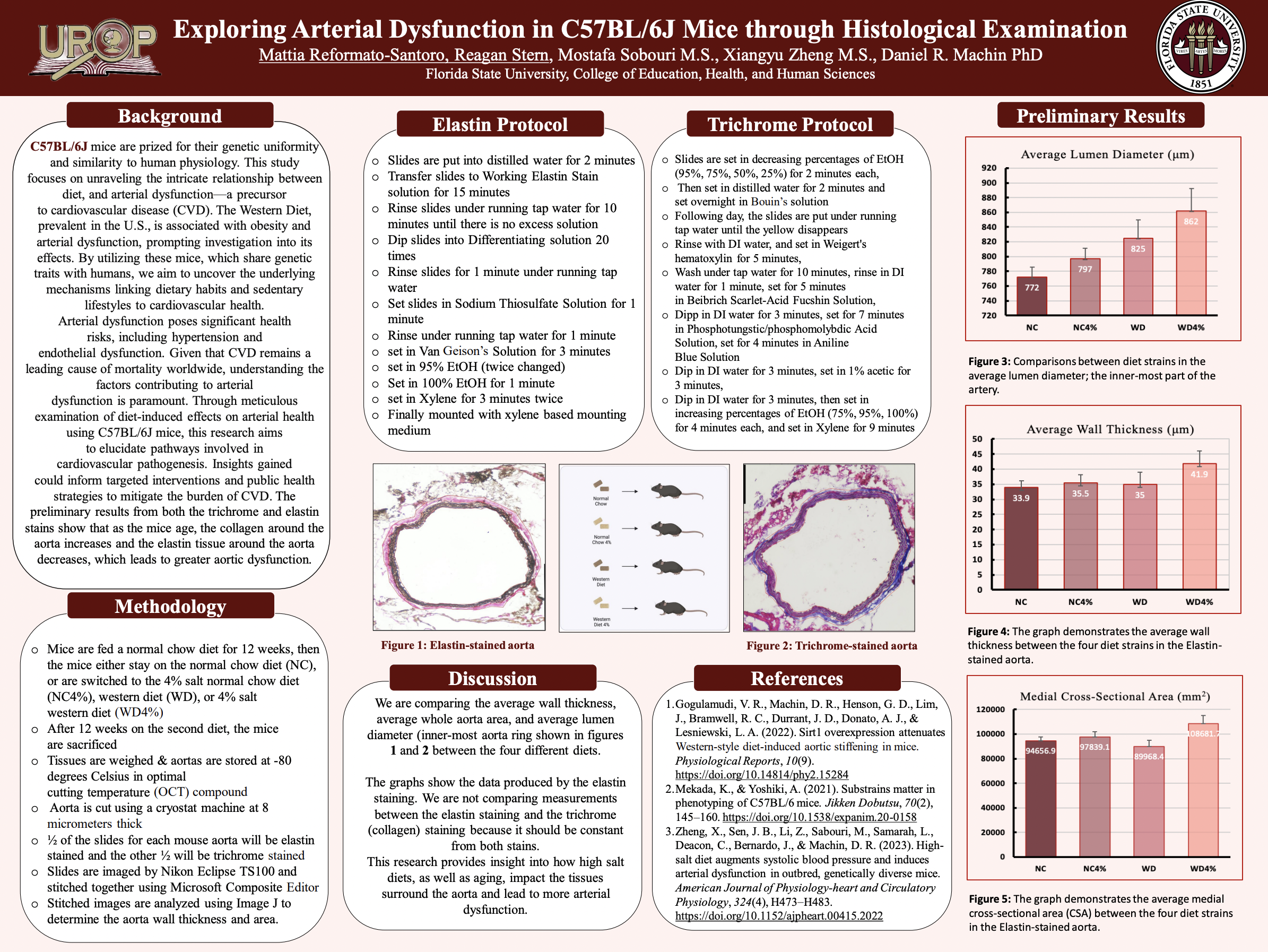Research Symposium
24th annual Undergraduate Research Symposium, April 3, 2024
Mattia Reformato-Santoro Poster Session 3: 1:30 pm - 2:30 pm/360

BIO
Mattia is a second-year undergraduate student from Fort Lauderdale, FL. She is double-majoring in Cell & Molecular Neuroscience and Communication Sciences & Disorders with a minor in Chemistry. Mattia is on a pre-medical track with future goals to earn an MD-PhD. As a first-generation student, Mattia strives to excel academically, contribute to scientific research, and provide high-quality services to rural and underserved communities. Under the supervision of Dr. Daniel Machin, she has worked as an undergraduate researcher in his lab, studying cardiovascular physiology and the influence of aging and lifestyle on the development of cardiovascular disease. This role entailed skills such as handling mice, dissections, histology, and genotyping. Aside from her role in the lab, she represents Florida State as a University Ambassador, Learning Assistant, American Medical Women's Association (AMWA) Service Chair, and a vocalist in the FSU Women's Glee Club.
Exploring Arterial Dysfunction in C57BL/6J Mice through Histological Examination
Authors: Mattia Reformato-Santoro, Daniel Machin, Ph.D.Student Major: Cell & Molecular Neuroscience and Communication Sciences & Disorders
Mentor: Daniel Machin, Ph.D.
Mentor's Department: Department of Nutrition and Integrative Physiology Mentor's College: College of Education, Health, and Human Sciences Co-Presenters: Reagan Stern
Abstract
Age- and lifestyle-related changes in the structural and functional properties of arteries contribute to impaired vascular function, elevated blood pressure, and a heightened risk of cardiovascular disease. Despite the well-established benefits of regular exercise and a healthy diet in preventing obesity and promoting heart health, the prevalence of a high salt, high-fat diet, and inadequate physical exercise in the typical American lifestyle contributes to cardiovascular disease. This research focuses on understanding how interventions, specifically exercise and dietary modifications, that have an effect on the restoration of vascular function. For this research, we will be using the C57BL/6J mice, which is an inbred strain that was the first to have their genome completely sequenced. These mice are particularly useful for studying cardiovascular diseases related to aging because they have low bone density, are capable of developing diet-induced obesity, and type 2 diabetes. After dietary exposure, mice were dissected, and their aortas were preserved, sliced, stained, and microscopically analyzed. The histology analysis detailed examination of the differences between the normal chow and western diets. The findings from this study contribute valuable insights into the intricate relationship between diet, exercise, and cardiovascular health. By utilizing the C57BL/6J mouse model, this research enhances our understanding and ultimately paves the way for targeted interventions and preventive strategies in cardiovascular health.
Keywords: C57BL/6J, aorta, arterial dysfunction


